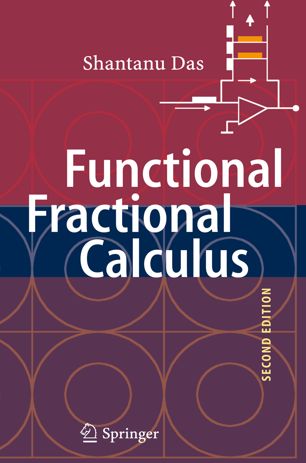Product desciption
Functional Fractional Calculus Shantanu Das by Shantanu Das 9783642205446, 3642205445 instant download after payment.
When a new extraordinary and outstanding theory is stated, it has to face criticism and skeptism, because it is beyond the usual concept. The fractional calculus though not new, was not discussed or developed for a long time, particularly for lack of its application to real life problems. It is extraordinary because it does not deal with ‘ordinary’ differential calculus. It is outstanding because it can now be applied to situations where existing theories fail to give satisfactory results. In this book not only mathematical abstractions are discussed in a lucid manner, with physical mathematical and geometrical explanations, but also several practical applications are given particularly for system identification, description and then efficient controls. The normal physical laws like, transport theory, electrodynamics, equation of motions, elasticity, viscosity, and several others of are based on ‘ordinary’ calculus. In this book these physical laws are generalized in fractional calculus contexts; taking, heterogeneity effect in transport background, the space having traps or islands, irregular distribution of charges, non-ideal spring with mass connected to a pointless-mass ball, material behaving with viscous as well as elastic properties, system relaxation with and without memory, physics of random delay in computer network; and several others; mapping the reality of nature closely. The concept of fractional and complex order differentiation and integration are elaborated mathematically, physically and geometrically with examples. The practical utility of local fractional differentiation for enhancing the character of singularity at phase transition or characterizing the irregularity measure of response function is deliberated. Practical results of viscoelastic experiments, fractional order controls experiments, design of fractional controller and practical circuit synthesis for fractional order elements are elaborated in this book. The book also maps theory of classical integer order differential equations to fractional calculus contexts, and deals in details with conflicting and demanding initialization issues, required in classical techniques. The book presents a modern approach to solve the ‘solvable’ system of fractional and other differential equations, linear, non-linear; without perturbation or transformations, but by applying physical principle of action-and-opposite-reaction, giving ‘approximately exact’ series solutions. Historically, Sir Isaac Newton and Gottfried Wihelm Leibniz independently discovered calculus in the middle of the 17th century. In recognition to this remarkable discovery, J.von Neumann remarked, “...the calculus was the first achievement of modern mathematics and it is difficult to overestimate its importance. I think it defines more equivocally than anything else the inception of modern mathematical analysis which is logical development, still constitute the greatest technical advance in exact thinking.” This XXI century has thus started to ‘think-exactly’ for advancement in science & technology by growing application of fractional calculus, and this century has started speaking the language which nature understands the best.


